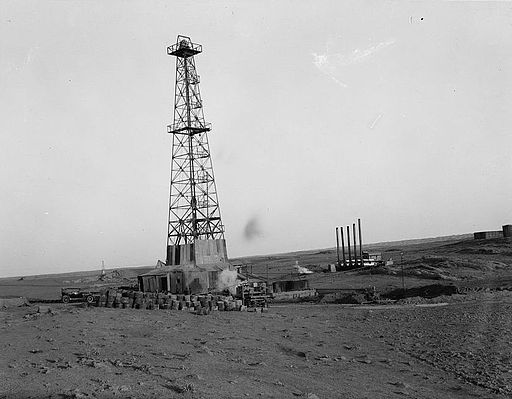If you thought peak oil had gone away, or at least turned out to be not as bad as you thought it might, perhaps it is time to think again. I expect this story was missed by many, being published as it was the day before Christmas Eve, indeed I only just became aware of it myself. I suggest you go and read the full article in The Guardian, but to show you why, here's a few quotes from the article, which itself is quoting Dr Richard Miller, who worked as a geologist for BP from 1985 to his retirement in 2008.
Dr. Miller critiqued the official industry line that global reserves will last 53 years at current rates of consumption, pointing out that "peaking is the result of declining production rates, not declining reserves." Despite new discoveries and increasing reliance on unconventional oil and gas, 37 countries are already post-peak, and global oil production is declining at about 4.1% per year, or 3.5 million barrels a day (b/d) per year: "We need new production equal to a new Saudi Arabia every 3 to 4 years to maintain and grow supply... New discoveries have not matched consumption since 1986. We are drawing down on our reserves, even though reserves are apparently climbing every year. Reserves are growing due to better technology in old fields, raising the amount we can recover – but production is still falling at 4.1% p.a. [per annum]."...
"... a sustained decline in global conventional production appears probable before 2030 and there is significant risk of this beginning before 2020... on current evidence the inclusion of tight oil [shale oil] resources appears unlikely to significantly affect this conclusion, partly because the resource base appears relatively modest."...
In fact, increasing dependence on shale could worsen decline rates in the long run: "Greater reliance upon tight oil resources produced using hydraulic fracturing will exacerbate any rising trend in global average decline rates, since these wells have no plateau and decline extremely fast - for example, by 90% or more in the first 5 years."
"The final peak is going to be decided by the price - how much can we afford to pay?", Dr. Miller told me in an interview about his work. "If we can afford to pay $150 per barrel, we could certainly produce more given a few years of lead time for new developments, but it would break economies again."
And the 'least worst' it gets is:
"We are probably in peak oil today, or at least in the foot-hills. Production could rise a little for a few years yet, but not sufficiently to bring the price down; alternatively, continuous recession in much of the world may keep demand essentially flat for years at the $110/bbl price we have today. But we can't grow the supply at average past rates of about 1.5% per year at today's prices."
Like I said, go and read the full article...
The Royal Society journal it all comes from is available free online too - I'll read through it when I have time and post some comments, but if you want to take a look now, it's here.
Click here to read the rest of this post.
